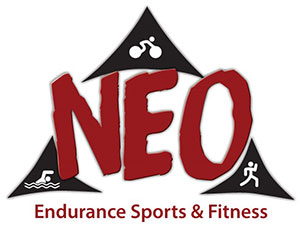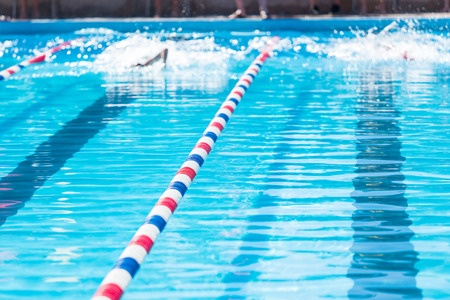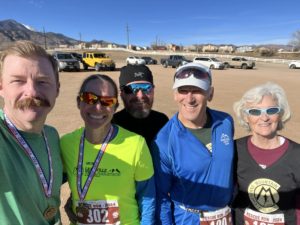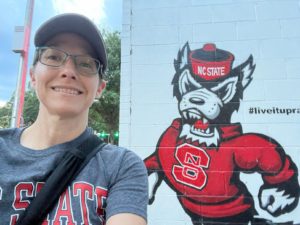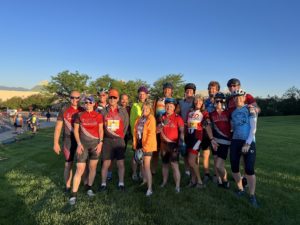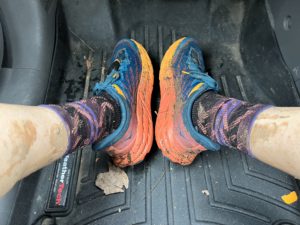Last weekend I had the chance to attend the Colorado High School Coaches Association (CHSCA) Track and Cross Country Clinic. The event started Friday evening and finished up mid-day Saturday. During that time I attended five talks that I thought would be most beneficial to me. Some of the presentations dealt with shorter distances, like the 800m race, or multi-event training meaning heptathlon and decathlon. Even though I tend to deal with much longer distances, there were a lot or relevant overlaps.
The talks I attended are as follows:
- Multi-Event Training with John Green
- 800M Training with Jay Johnson
- Distance Training For All Seasons with Matt Norton
- Warm-Up Exercises with Holly Thompson
- Psychology of Performing with Matt Norton
Here are they key take-aways that I feel are beneficial to ALL athletes.
Mental Training is very important! Both John Green and Matt Norton’s 2nd talk addressed the mental/psychological aspects of training.
The athlete must learn how to control thoughts and emotions. Have control over emotions, attention, and arousal. Controlling the emotions means happiness and excitement, anger, frustration, or other similar emotions. Know the focused emotional state for your optimal performance and be able to get there.
Having control over attention means be in the moment. Forget what has happened in the past, at a previous point in the race, or during a previous event. Don’t think about what’s coming up unless it’s immediate so you can properly execute your race strategy. For the triathlete this means once the swim is done it is done. Focus on T1. Once you are on the bike, focus only on your bike plan. Then only T2. Then only the run. Don’t think back, don’t think about your bike or run during the swim. Race the moment, race your plan.
John talked about heptathletes and decathletes transitions, but it is relevant to triathletes or cyclists (and sometimes runners) doing stage races. Have transitional control.
Have a plan and have a routine. (My Triathlon Success Strategies program and eBook teaches this to triathletes.) Be regimented. Know exactly what you are going to do when one event ends and you have to move to the next. Know your physical preparation and also your mental preparation (have mental cues and triggers). If your next event is the next days, know exactly how you will spend the evening and the next morning. What’s your recovery routine? What are you having for breakfast the next day?
Matt Norton said similar things in a slightly different way. His five points were:
- Have the proper time orientation
- Practice positive self-talk
- Keep your composure for optimal arousal
- Concentrate only on what matters
- Confidence is a choice – choose it!
Matt also discussed visualization, which I feel is very important for successful racing. If you’ve mapped out a successful race day in your head, chances are it will happen that way. And if it doesn’t, you’ll be able to handle the deviations a lot better. Both speakers referenced Dr. Rick McGuire as a good reference for positive sport psychology.
Physical Training: For the physical side of training that can benefit all athletes, proper conditioning is key. Holly Thompson and Jay Johnson touched on this during their talks. Think about warming up in a fashion that will prepare your muscles for the activity that will talk place. Dynamic warm-ups are great for this. Easy activities that mimic pieces of the motions that you will be using in your sport to wake up those muscles!
Conditioning is key. All coaches actually said weight training is important, but it needs to be specific to the athlete. Of course a short distance power athlete will have different sport-specific strength requirements than an endurance athlete but both athletes need to have strong core and hips. Do activities to make sure these are strong and mobile/flexible.
Jay Johnson said the one thing we don’t do enough is this type of conditioning. We’d rather run for 10 more minutes than spend 10 minutes doing exercises that might help us get faster, or at least help us from getting injured. Another note I have from his talk is that the neuromuscular system can always improve.
Body weight strength sessions, hip mobility workouts and active isolated flexibility are great ways to achieve this conditioning.
While I likely won’t be coaching anyone in the high jump anytime soon, I definitely think the above principles can help athletes of all levels. They certainly are in line with my philosophy and how I help endurance athletes of all levels perform at their best.
